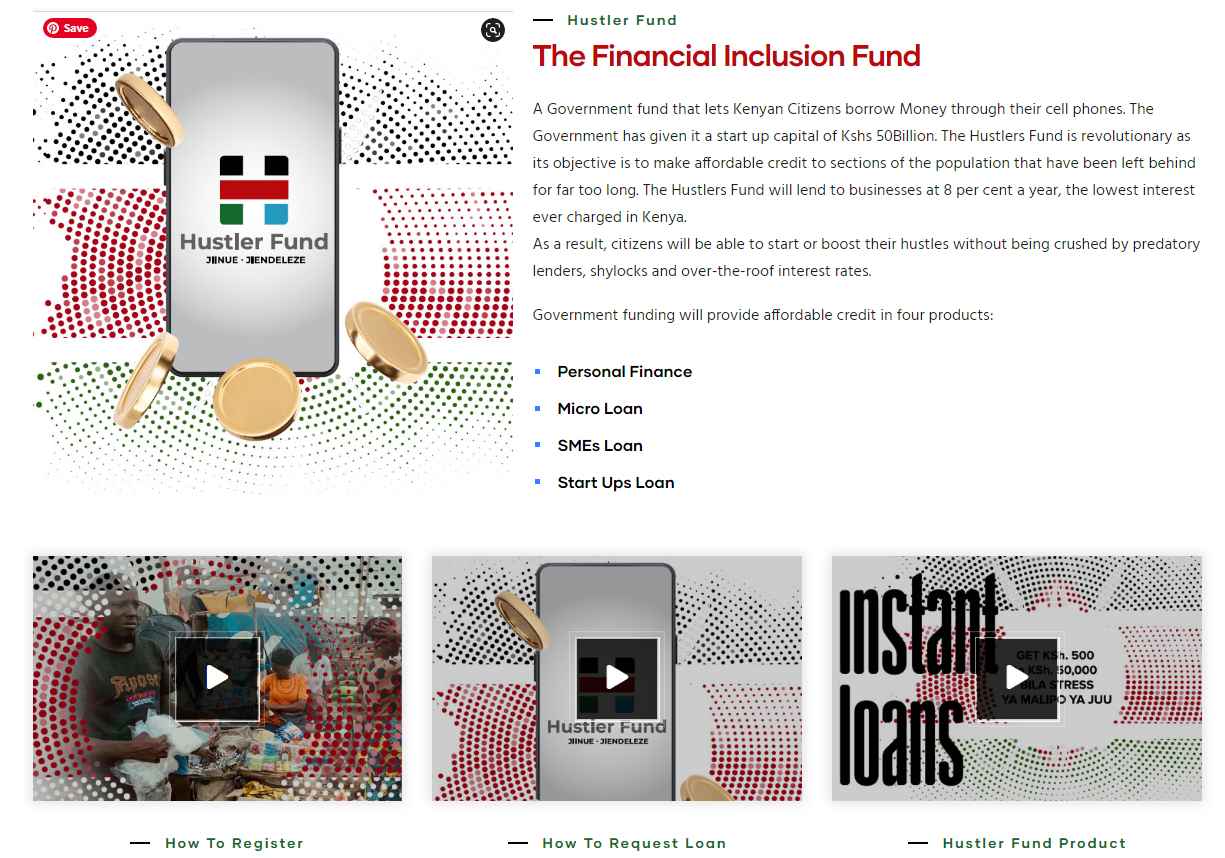Hustler Fund Data Privacy: The Hustler Fund is Ruto’s $410 million loan project meant to lift millions of Kenyans out of poverty through his bottom-up economic model. In a country where only 9% of the workforce has a stable income—39% of Kenyan youth are without jobs—such an offer carries huge potential.
However, citizens and data privacy experts alike are now worried about the multiple layers of data collection and processing involved in securing funds.
The problem with the Hustler Fund Data Privacy
Ruto’s campaign promise notwithstanding, it turns out that Hustler Fund charges 8% as interest if loan buyers repay the amount within 14 days. Past that deadline, the rate goes up to 9.5%.
Besides, the amounts many of the applicants qualify for are simply too low to help them out of financial woes. It is not clear which credit history data the government uses to determine loan amounts.
There are other, more significant, problems, too.
“The first issue is informed consent. They (the government) have just tailored a draft privacy policy. Ideally, it should be in a language that the ‘hustler’ understands,” Elizabeth Orembo, a member of the Kenya ICT Action Network (KICTANet), a Nairobi-based tech policy think tank, told Quartz. “Instead it is in a legalese that would only be understood by the Kenyan elite.”
In any case, even though Kenya has a relatively high rate (pdf) of digital literacy, only a segment of the population understands data protection. This is despite campaigns by the data protection commission to educate citizens.
Only 36% of Kenyan companies are aware of privacy laws. Of these, 58% admit to allowing third-party trackers to collect customer data on their systems—without consent.
Data-related problems, therefore, can’t be far behind.
For instance, on registering for a loan, the Hustler Fund platform seeks the applicant’s M-Pesa pins. M-Pesa is a mobile banking service that allows Kenyans to store and transfer money through their mobile phones. Again, applicants aren’t given the option to hold back consent for the use of this pin.
Kenyans on social media have labeled this
“data mining without user consent.”
Moreover, many applicants have not received any money even days after applying, further raising the specter of data safety in the hands of multiple data processors.
Comment From Experts and Kenyan Citizens…
“Who is the data processor in this case? Is it the government or mobile money providers? Who else has access to the data? Because Equity Bank says their loans will also use the Hustler Fund credit history to calculate creditworthiness. Who else is in this game as a data processor?” KICTANet’s Orembo asked.
While the government has tried to explain the need for applicants’ M-Pesa pins, experts believe this breaches the 2019 Data Protection Act.
“Your right to privacy is baked into your 2010 constitution and even the government should not take it away. The fact that most governments regularly violate citizen privacy should never, ever be normalized,” John Walubengo, a data protection consultant, noted on the KICTANet public forum.
“As a citizen, you have a say in every step of the long personal data life cycle that includes accessing, collecting, processing, sharing, retention, securing, and retiring it,” he said.
Some applicants say their data is already being shared or sold without permission.
'Want to send us a story? Submit to NAIROBIminiBLOGGERS via our Email nairobiminiblogger@gmail.com'“The problem is that many applicants just want the money, they’re unaware of their data privacy rights,” said Egline Samoei, another KICTANet member.


Reading your article helped me a lot and I agree with you. But I still have some doubts, can you clarify for me? I’ll keep an eye out for your answers.